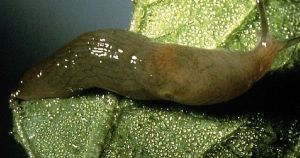
Most of my adult life I have not signed up for cable TV. It's been a time sucking temptation I didn't need or want. But that's not because I'm some kind of stuck up puritan deeming the viewing of comedies and dramas on the small screen as sinful or wasteful. I just know myself - I love the distraction of a tale well told or a meal well cooked. In consequence my viewing of popular series has been as a customer of Netflix. I tell you this to explain the next part: I watch TV series after everyone else as seen them because I watch them on DVD.
I'm a big fan of the hit Showtime series Dexter and gobbled up Season 1 & 2 with avidity of appetite that left me with a very long wait for Season 3. I had to fill that time somehow. Dexter, serial killer with a code, is such an engaging and fascinating character that when I discovered that he was actually inspired by a book I was delighted. I'm one of those who love to read and believe that most books are better than the shows/movies made from them. I understand that it's hard work to adapt a book to a totally different medium and realize that the result often diverges enough from the original that the reader is left unsatisfied: their imaginative take on the events and characters far different than the script writer and director's. So to say that I was excited to find that Jeffrey Lindsay was the creator of one of my favorite television character was possibly an understatement. These were not books based on the hit series, but a hit series based on popular books, bound to be as good at the show if not better. I must be in for a treat so I bought all three extant books at once.
Here is where I'm going to offend Jeffrey Lindsay and all his fans. These were definitely the worst three books I have ever read as a series. I confess that I hated the first trilogy of Thomas Covenant by Stephan R. Donaldson nearly as much but for very different reasons, but in main if I have bothered to read three books by the same author about the same subject I'm probably hooked. I was not hooked; I was desperate. I wanted to be in Dexter's world and this was the best I could do while I waited for the series to return (thankfully they were both short and easy to read). Lindsay created an engaging character, a bold premise, and a convincing setup, and for that I will always be grateful. But after that he let me down with pedestrian writing and cheap tricks.
One huge mistake: his sister Debra finds out he's a killer in the beginning of the first book, but she loves him anyway in the second book. Where is the alienation that so defines the character? Doakes gets all his limbs cut off but clumps into the office anyway? Was that mean to be humorous? And the third book... I'm rolling my eyes at this one. In the third book Lindsay blows away his own brilliant premise by making Dexter possessed of a demon, rather than the interesting psychology that is hinted at (not actually explored because Lindsay is not that good of a writer) in the previous novels. The device of Dexter's inner monologue has its source in the books, but whereas it is very interesting and well done in the TV series, after three books you're tired of the boasting and whining:
"Gosh I'm a smart guy without any human emotions, why can't I do my normal brilliant analysis of this challenge right now?"
That was a paraphrase because I can't access the books anymore. Disgusted that I read all three I passed them onto another Dexter fan - who then did precisely what I did - read them all in disgust and then dumped them off somewhere like a dead body that needed disposal. I have googled around the web for evidence that others viewed Lindsay's hack writing the same way as I did, but I have not found it. I believe that Dexter is so arresting as a character in fiction that Lindsay is easily pulling the wool over the eyes of his readers, but the glamour can't last forever.
What is the point of trashing Lindsay's books in my blog since this is not intended as a review? I think, for me, that it's that the collaborative effort that took flight from Lindsay's brilliant starting point shows that the artistic process, even for crafting stories, doesn't have to be a lonely journey. We all know that movies and TV shows are the result of the work of a lot of people, but we always think of them in terms of a 'a writer', 'a director', or 'a star', but the fact is that all those people and more work together to produce a show like Dexter. Every link in the Dexter chain, from Lindsay's premise, to the uncanny performance by Michael C. Hall, is part of a greater whole of people coming together to create something unique in the world. At least that's how I like to think of it when I collaborate on my fiction projects - that we are bringing something unique into the world through our collective creativity and vision. Lindsay conceived Dexter, but it took 'a village' to raise this monster.






 I hate slugs; even their name is repellent. They're slimy little squishy eating machines: gross miniature monsters eating holes in the beautiful leaves of my imagined perfect garden. Though I hate to touch them I had no qualms about crushing them under the heel of my boot to rid the garden of their pestilence. A few minutes later I came across the common garden snail (escargot to you) and my reaction was quite different. It's still a garden pest and eating machine but instead of active repugnance I pick it carefully up by its stripped tortoiseshell-like spiral home where it brings a smile to my face as it starts to uncurl its little noble head from its body to peer at me inquisitively from its extraordinary eyestalks.
I hate slugs; even their name is repellent. They're slimy little squishy eating machines: gross miniature monsters eating holes in the beautiful leaves of my imagined perfect garden. Though I hate to touch them I had no qualms about crushing them under the heel of my boot to rid the garden of their pestilence. A few minutes later I came across the common garden snail (escargot to you) and my reaction was quite different. It's still a garden pest and eating machine but instead of active repugnance I pick it carefully up by its stripped tortoiseshell-like spiral home where it brings a smile to my face as it starts to uncurl its little noble head from its body to peer at me inquisitively from its extraordinary eyestalks. I couldn't crush it: I carefully carried it out of the garden. I never have been able to harm a snail. They're slippery, not slimy. They have beautiful shells. They have an elegance when fully extended, a sort of equine grace to their heads and the arch of their body as they navigate their world with a slow steady curiosity. I'm sure many of these are imagined qualities in my head, but my love affair with snails has been going since I was a kid when I would collect them to keep as pets, and carefully release them before I had them too long.
I couldn't crush it: I carefully carried it out of the garden. I never have been able to harm a snail. They're slippery, not slimy. They have beautiful shells. They have an elegance when fully extended, a sort of equine grace to their heads and the arch of their body as they navigate their world with a slow steady curiosity. I'm sure many of these are imagined qualities in my head, but my love affair with snails has been going since I was a kid when I would collect them to keep as pets, and carefully release them before I had them too long. The irony of all of this is that slugs, to most people, are snails without shells. In the mind of most people they are quite similar, if not nearly exactly the same, and the slime of the slug is the slime of the snail. Each has the same disastrous effect in the garden as they munch their way across your favorite shrub, veggies, and flowers. Even biology bears out the opinions of most people: they are both gastropods that got out of the sea and crawled on the land. Slugs developed mucus to protect their soft bodies designed for aquatic living and snails have a shell, like many of their relatives. Sea slugs are some of the most beautiful creatures on earth, nudibranchs, and even some land slug species are quite extraordinary.
The irony of all of this is that slugs, to most people, are snails without shells. In the mind of most people they are quite similar, if not nearly exactly the same, and the slime of the slug is the slime of the snail. Each has the same disastrous effect in the garden as they munch their way across your favorite shrub, veggies, and flowers. Even biology bears out the opinions of most people: they are both gastropods that got out of the sea and crawled on the land. Slugs developed mucus to protect their soft bodies designed for aquatic living and snails have a shell, like many of their relatives. Sea slugs are some of the most beautiful creatures on earth, nudibranchs, and even some land slug species are quite extraordinary.